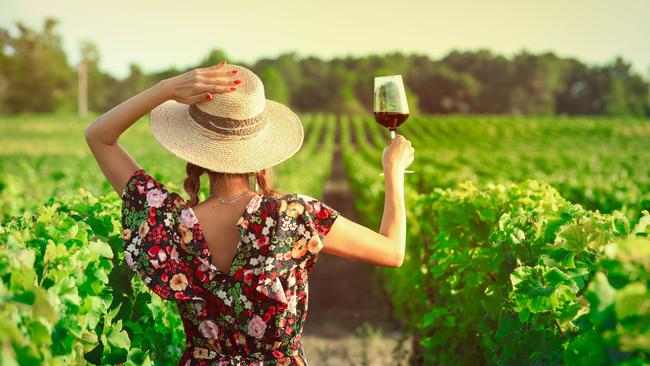Zero alcohol wine? I’m struggling with it
I’ve been drinking. It’s 10am and I’m on my second bottle. But have I been drinking? Is zero alcohol wine really wine?

I’ve been drinking. It’s 10am and I’m on my second bottle. But have I been drinking? Is zero alcohol wine… wine? It’s a question with obvious parallels, such as: should decaffeinated coffee be called “coffee”, or meat made with vegetable protein “meat”?
Ask the producers, and there are many, and you’ll get an emphatic “yes”. They’ll tell you their “wines” are made like any other and then put through a process, such as vacuum distillation, to remove the alcohol. But is it right to call a beverage that is entirely different to wine on the palate, in the olfactory passage and, indeed, in the bloodstream, “wine”? I’m struggling with it.
Several producers, local and abroad, use the phrase “alcohol-removed wine” or “de-alcoholised wine” to describe it. Others use style (“sparkling” or “rosé” for example) and still more go with grape variety. Some, such as Lindemans, use a combination (“Alcohol Free Sparkling Chardonnay”).
There are alcohol-free beverages on the market made from grapes typically associated with winemaking, such as Maggie Beer Sparkling Chardonnay, that don’t start life as wine. But most do. And just to be clear, a zero per cent beverage made from grapes can only be labelled “de-alcoholised wine” or similar in Australia if the product meets the definition of wine before it has been de-alcoholised.
In the UK, legally, there is no such thing as “low- or no-alcohol wine”. Wine needs to have a minimum alcohol level of 8 per cent, unless a specific exemption exists (for instance, Moscato d’Asti). Otherwise it must be called a “wine-based drink” or similar, according to wine mag Decanter.
I’ve tried several products from three different producers; I like the idea. Anyone who drinks regularly should probably think about ways of cutting back. But none of them even remind me of wine. Remotely.
Sans Drinks, based in Sydney’s Freshwater, is the major Australian retailer in the space. Founder Irene Falcone says there’s growing demand for her alcohol-free bottle shop from regular wine drinkers wanting “substitute days”. “It’s people who drink a normal amount of alcohol, which is already too much, swapping out days,” she says. “People aren’t saying they’re giving up alcohol. What they’re asking is, ‘Do I want my wine with or without alcohol?’”
What I want is better wine without alcohol. If we’re calling it wine. As leading Margaret River winemaker Bruce Dukes (Domaine Naturaliste) puts it, typically alcohol represents around 13 parts in 100 of a wine. Removing it “removes a major physical component of that beverage”, one that contributes both sweetness and texture.
Noted winemaker Rob Mann (Swinney, Corymbia) has a different view: “A fermented beverage made from grapes is wine and I think it remains so if the alcohol is removed. I want to encourage responsible consumption of wine and encourage people to drink locally. If this means they can still enjoy the benefits without the alcohol then I think this helps build the culture of healthy wine consumption.”
Mann adds: “If the base material is qualitatively ambitious rather than simply commercial, it will likely be an important component of the industry.”
So let’s drink to a good idea. And hope the best is yet to come.



To join the conversation, please log in. Don't have an account? Register
Join the conversation, you are commenting as Logout